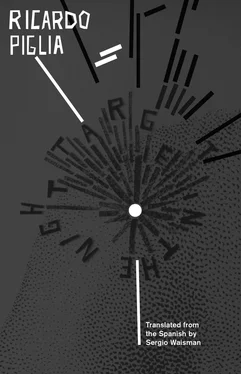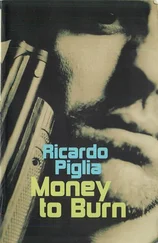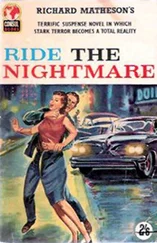Ricardo Piglia
Target in the Night
Experience is a dim lamp that only lights the one who bears it.
LOUIS-FERDINAND CÉLINE
INTRODUCTION. WHAT’S IN A TITLE? FROM “BLANCO NOCTURNO” TO “TARGET IN THE NIGHT”
Ricardo Piglia was born in Adrogué, in the Province of Buenos Aires, Argentina, in 1941. One of Latin America’s most important living writers, Ricardo Piglia is known for his sophisticated combination of formal experimentation and political and cultural engagement. The author of fourteen books of fiction and non-fiction, Piglia’s work has been translated, among others, into French, German, Italian, Dutch, Polish, Chinese, Arabic, Hungarian, and Portuguese, as well as English. Target in the Night was originally published in Spanish in 2010 as Blanco nocturno , and in 2011 it won the Rómulo Gallegos Award and the National Critics Prize, two of the most prestigious awards given to a single work of Spanish-language literature in the world. In 2015, Ricardo Piglia was awarded the Formentor Prize, which recognizes a lifetime contribution to literature, previously awarded to Borges, Beckett, Bellow, and Gombrowicz, and most recently Fuentes, Goytisolo, Marías, and Vila-Matas.
Target in the Night is a kind of literary thriller set in the pampas of Argentina. Tony Durán, a Puerto Rican mulatto from New Jersey, arrives in a small town in the province of Buenos Aires with a suitcase full of American dollars. All indications are that Durán comes in pursuit of two beautiful women, the Belladona sisters, whom he met in Atlantic City, and with whom he formed a hasty trio. But the Belladona sisters may not have been the real, or at least not the only, reason for Durán going to Argentina. A few weeks after Durán’s arrival in the small Argentine town, a murder ensues. Inspector Croce, the local, somewhat-rambling genius detective, investigates the crime. A writer from El Mundo , a newspaper in Buenos Aires, is sent to the remote area to cover the story; the journalist is Emilio Renzi, the author’s well-known alter-ego figure, who appears in most of Piglia’s fictions.
As Target in the Night unfolds, the investigations by Croce — and by Renzi — uncover a series of hidden associations that lead to further inquiry. The story involves a powerful local family, a corrupt public prosecutor, and the relationships that Inspector Croce and the investigative journalist Renzi have and develop with the town residents. The initial enigma drives the narrative, and the different storylines in the novel all hinge around the initial crime. But there is also a larger mystery that lies as if hidden beneath the town and the text. The mystery at the heart of Target in the Night is an actual mystery and a pretext for the telling of a complex family story — which turns out, in many ways, to be the story of Argentina.
Experimenting with form, innovating with narrative, recounting gripping tales that revolve around a central plot, Target in the Night starts as a detective novel, and soon turns into much more than that. Piglia takes the genre of the detective story and transforms it into what can be called, using Piglia’s own term, “paranoid fiction.” Everyone in the novel is a suspect of a kind, everyone feels persecuted. In Piglia’s paranoid fiction, individuals are accused of — and some commit — crimes, but the category of a “criminal” no longer applies only to isolated individuals. Groups with power over other groups maneuver to conserve or gain more power through hidden as well as overt moves. No one understands what is happening, the clues and testimonies are contradictory, and suspicion is always in the air, because the versions of the story change with every point of view. As we follow Croce and Renzi through Target in the Night , the potential — and the intrigue — of the story expand with the many voices interwoven throughout the narrative. Important in Piglia’s book is the exploration of what is left unsaid, of what is hidden but cannot be forgotten. The initial crime is a point of departure for a series of unpredictable events and a fascinating inquiry into the machinations of society and storytelling in a small town in Argentina. Machinations that have everything to do with contemporary fiction — and with contemporary reality.

Ricardo Piglia’s Target in the Night is deeply rooted in its nation’s literary tradition, and in a certain Río de la Plata kind of Spanish ( castellano rioplatense ). The context of a small town in the pampas, the language used by the narrator and spoken by the characters in the novel, and the foundational importance of the Argentine countryside in the history of Argentine literature make translating Target in the Night a big challenge. At times, Target in the Night echoes some of the Argentine greats that came before Piglia: Macedonio Fernández, Jorge Luis Borges, Roberto Arlt, Manuel Puig, Rodolfo Walsh. At others, the novel resonates with Modernists like Joyce and Faulkner, Fitzgerald and Hemingway, Brecht and Kafka, as well as the narrative worlds of Thomas Pynchon, Don DeLillo, and William Burroughs, or the hardboiled mysteries of Raymond Chandler and Dashiell Hammett. These are some of Piglia’s influences in Target in the Night , crossed and reworked in a thoroughly original style in the remote Argentine landscape where the mystery takes place.
How do you translate Blanco nocturno —a novel so rooted in Argentine tradition, a novel where the Argentine landscape and ways of speaking are so important — into English? How does one go from Blanco nocturno to Target in the Night ? One of the most difficult things to translate about Blanco nocturno , in fact, is the title itself. In Spanish, Blanco nocturno has several meanings, and there is no obvious way to reproduce those multiple meanings in English— Target in the Night comes at the end of a complex process that always seems to create as many or more questions as answers.
“ Blanco nocturno ,” translated literally, would be “Nocturnal White,” which does not make much sense in English. White Nocturne was a possibility, and it was never far from Target in the Night. But “ blanco ” in Spanish is not just “white.” The most important meaning of “ blanco ” in the context of the novel is probably “target.” “ Tiro al blanco ” is target shooting; “ dar en el blanco ” is to hit the target. While blanco does mean white, it also means blank, as in a blank space. Tony Durán, the mulatto Puerto Rican from New Jersey, the strange foreigner who travels to a small town in the Province of Buenos Aires, is a dark man at the center of a dark mystery. He is also a target from the moment he sets foot in the Argentine town. Or perhaps Durán has gone to the town with a secret target in mind. These possibilities emerge from the title and from a number of scenes in the novel that work by juxtaposing opposites: black and white, day and night, past and future, presence and absence, tradition and innovation.
I considered a number of titles as I worked on the translation, before arriving at Target in the Night . The centrality of the target, as well as the feel of the story, outdid the lyricism of White Nocturne. Nocturnal Target, or Night Target, were not far off. White Night would have overly simplified things, although it would have kept the blanco - nocturno binomial. Night Blanks, or Blank Night sounded mysterious, but too ambiguous. Night Vision, although intriguing, would have changed the meaning too much. Likewise, I considered A Shot in the Dark, but found it to be off the mark. Conrad Aiken has a lovely poem entitled “White Nocturne,” and while there are some very beautiful passages in Piglia’s novel, and while there is definitely something poetic about Blanco nocturno, the novel has a jazzy, driving feel to it, a noirish hook much closer to Target in the Night .
Читать дальше













